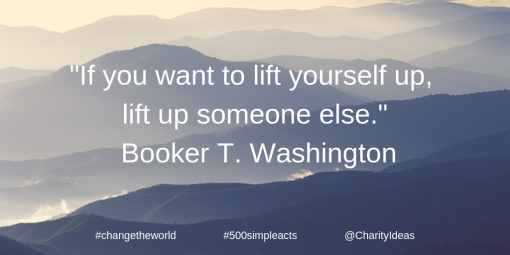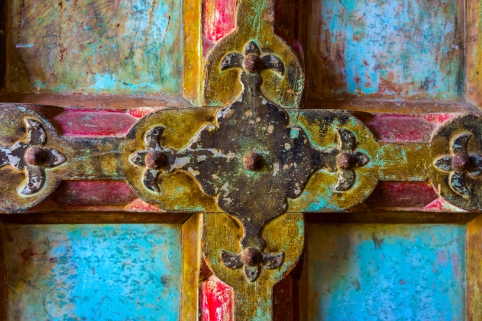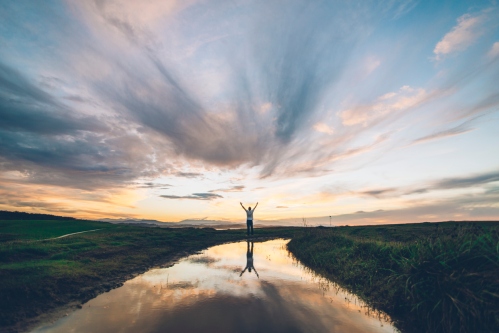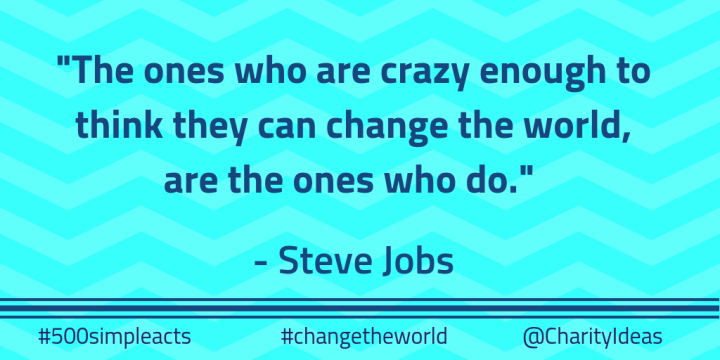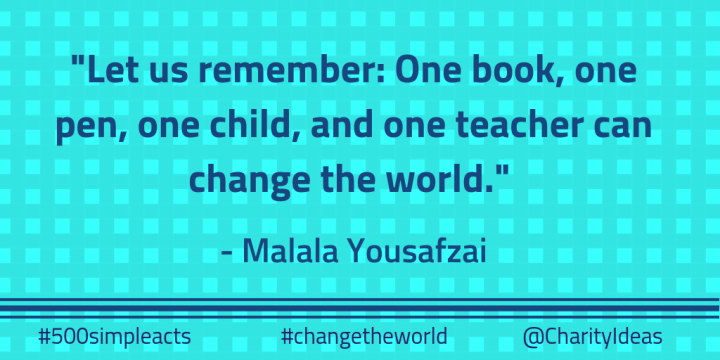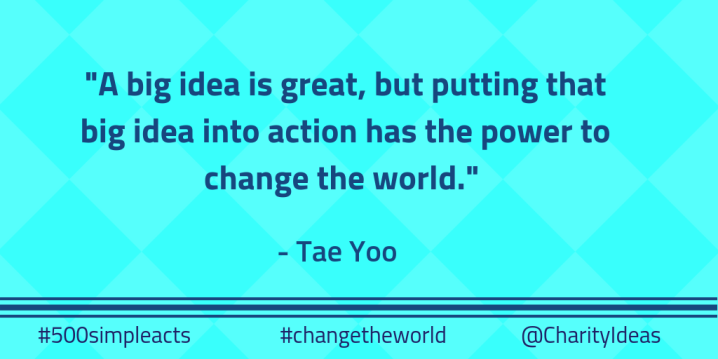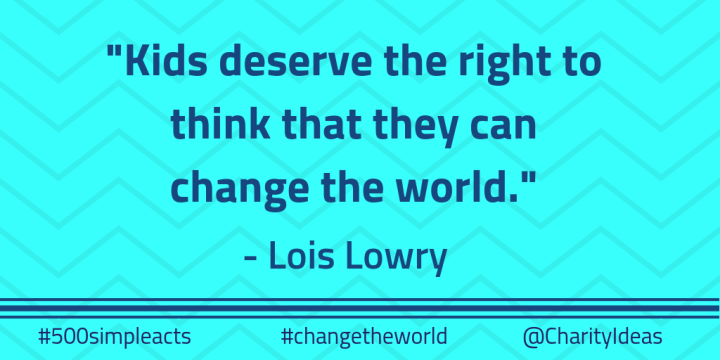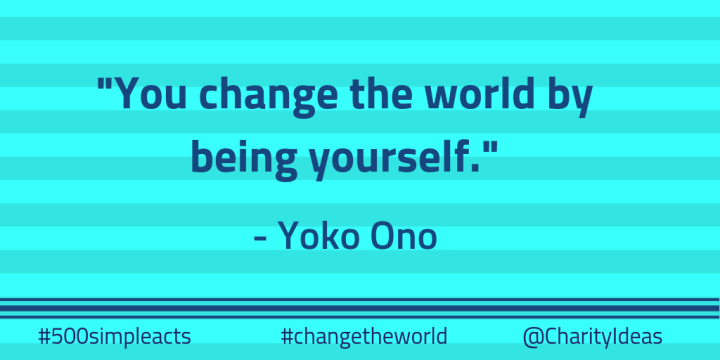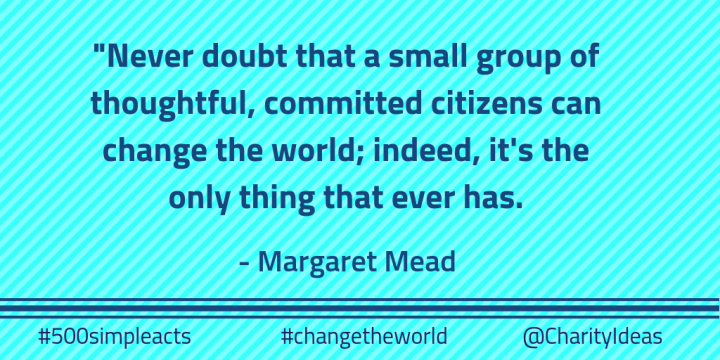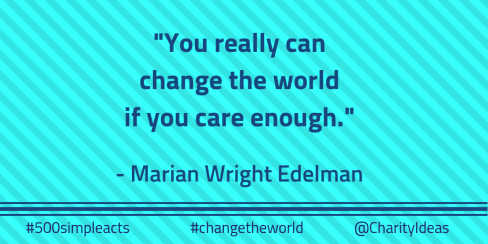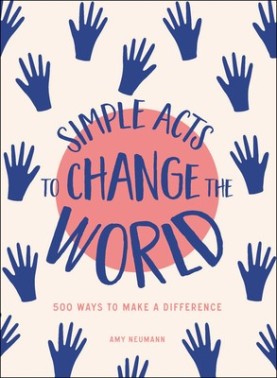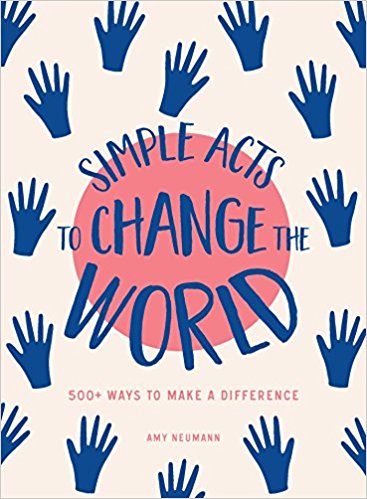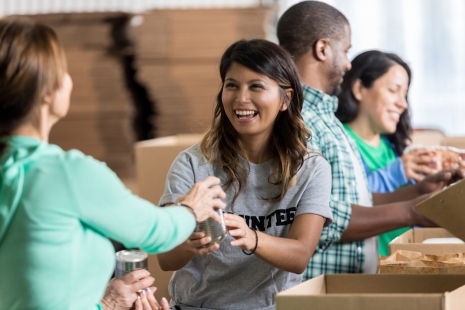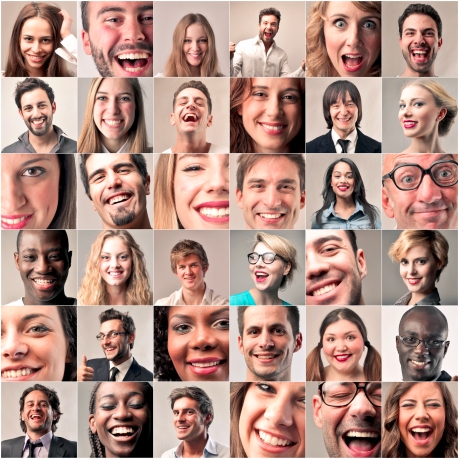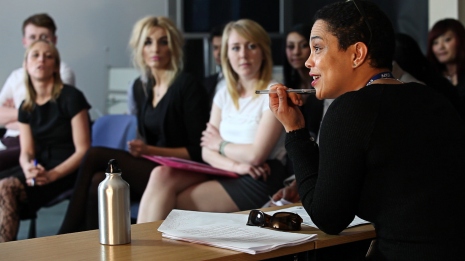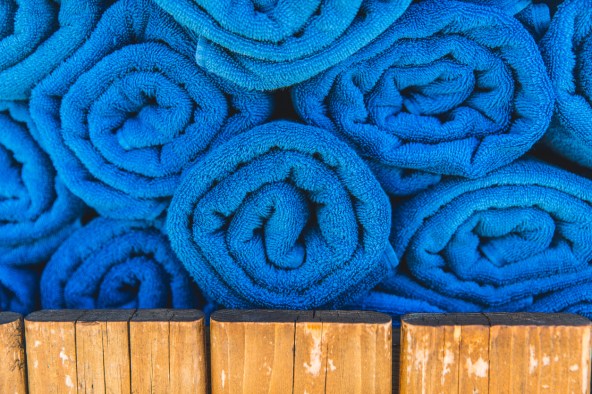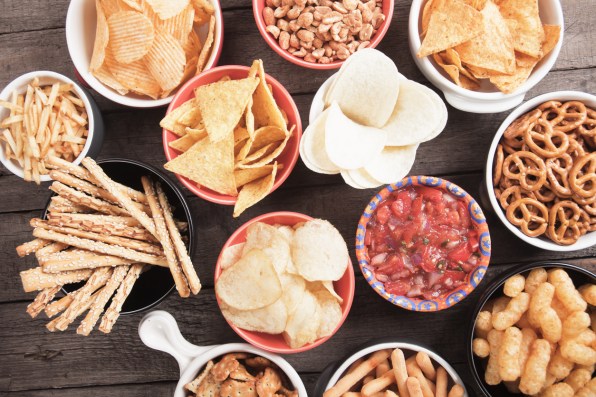“If you want to lift yourself up, lift up someone else.” Booker T. Washington
Often, I talk to people who ask me how they can help change the world. Some of them are the super go-getters, the people who always seem to be doing so much more than we mere mortals can do. More commonly, though, it’s regular, everyday people who want to help and are wondering how.
Sometimes, questions come from people who are feeling depressed (or are asking for a friend who is) and simply looking for some way to get outside of themselves for long enough to see if things can start making more sense again.
Luckily, helping others is one thing that really can make you feel happier, while also changing the world. Even science tells us that helping others helps ourselves.
For starters, you are a wonderful person for reading and sharing posts like this to try to learn new ways to help others (while also making yourself feel good). Just doing that is a bonus way to #changetheworld!
You matter. That fact that you’re reading this says that you care, that you want to make a difference, and that you are one of the people that is changing the world for the better – just by being a good human and by asking what you can do.
So, what can you do?
There are at least three categories of helping that you can choose.
Helping Directly
I can say from personal experience that getting out and helping others made a big difference for me as far as feeling happy and fulfilled – and maybe it can for you. The interaction with people and immediate feedback gives you the “helper’s high” that can enhance your mood for the better long after the activity is over.
Ways to help directly include:
- Getting involved and volunteering with an organization with a cause you personally care about
- Participating in activities and events that interact with people experiencing what you experienced
- Asking friends and family to join you in these efforts
Helping by Being an Advocate
This type of helping can be as easy as sharing what you love. Being the “number one fan” of an organization or cause, and being an informal spokesperson for them to your friends, family, and coworkers can really help increase awareness. Your voice is trusted by people you know, so sharing something that is important to you will probably be interesting to them.
- Sharing information, events, or activities about the cause, and an organization helping the cause, that you care about on social media
- Writing an article to share on a guest blog, LinkedIn, Medium, or Facebook
- Sharing photos and events from an organization you support on Facebook, Instagram, LinkedIn, Twitter, and Pinterest
- Writing to your elected officials and asking them to help support legislation that helps your cause, or prevents harmful laws against your cause
Helping by Donating
Donating might seem obvious, but donations are still the lifeblood of many organizations. Luckily, it’s easier than ever these days to give online when you feel inspired.
- Giving a donation in any amount directly to the cause – then share that you did on social media so others see that it matters to you
- Supporting organizations helping your cause via Kiva, Go Fund Me, Facebook donations, or another fundraising platform
- Asking your local government officials to help fund your cause via local organizations
While you are thinking about all the ways you might go forth and change the world, it might also be helpful to remember a few other simple things when thinking about being happier:
- It is completely valid to feel stressed, overwhelmed, or anxious. Most people feel stress, a feeling of being overwhelmed, or some anxiety fairly often.
- Social media is the “highlight reel” of people’s lives. It is unfair to compare yourself to others at all, and especially to what you see on social media, because social media is not necessarily day-to-day reality.
When I feel anxious and want to feel better, there’s one more thing important thing I’ve learned to do that really helps me calm down and refocus.
I think about all of the big and small things to be grateful for, and a few ideas are noted below. Sometimes putting things into perspective and thinking about the positive things to be grateful for helps to reduce anxiety and can make us feel happier.
Things you might choose to be grateful for at this very moment, if they are true for you:
- You can read
- You have clean water to drink
- You live in a free country
- You do not live in fear daily
- You have freedom of speech
- You have shelter
- You have food
- You have access to education
- You can decide most things
- You have equality
- You can express your religion
- You can express your gender
- You can love who you want
- You can be healthy
- You can earn a living wage
- You can save money
- You can voice dissent
- You have your mental faculties
- You have physical abilities
- You can change
- You can love
- You can create change
- You have friends
- You have family
- You can create peace
- You can create friendships
- You have reasons for optimism
- You help create the world you want to live in
Not everyone has all of these things, even the most basic. While we can debate the nuances of many of these items, some of you reading this might not have a few of them at all. There are many countries in the world where some of the items listed above are not reality. I hope that soon reality will be different in those places and that things can change.
For all of us reading this who might have some or most of the things listed above, it’s worth taking a moment to feel gratitude for that, at least.
The good news is, by helping others, you may be able to also impact creating larger change.
Other people’s ideas about how things should be are pretty unimportant, really, as far as the big picture is concerned. What truly matters is how we interact with other people, how we make other peoples’ lives better, and what we are doing to really create positive change.
It has become ever more vividly clear to me over the past decade or so that people are the reason it’s all worthwhile. Helping people. Appreciating people. It matters. And it can make a big difference in how happy we feel.
When people ask me how they can change the world, I usually have a pretty simple answer: Just be a good person, try to help others, and be grateful for the things you do have. The rest will follow.
Now go do a few simple acts to change the world (feel free to order my book with 500 ways to make a difference if you want some more ideas :). After all, as Lao Tzu eloquently stated, “The journey of a thousand miles begins with a single step.”
I’d love to hear your favorite world-changing or #gratitude ideas in the comments, and please connect with me @CharityIdeas or Amy Neumann on social media.
